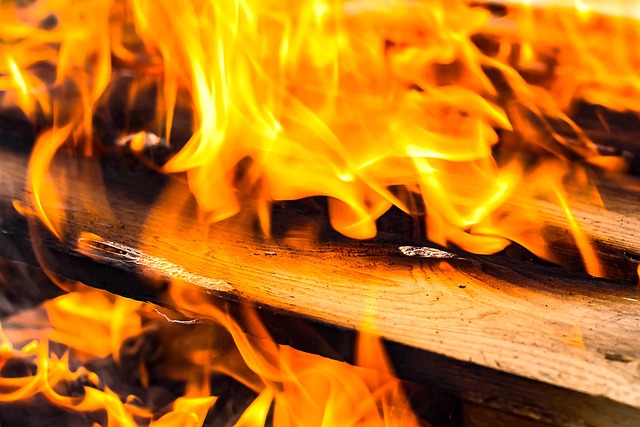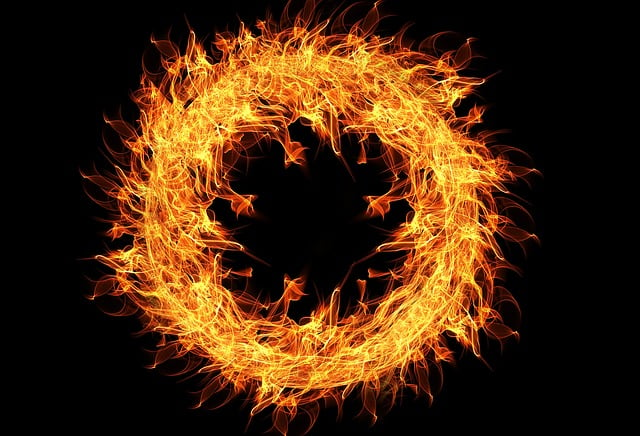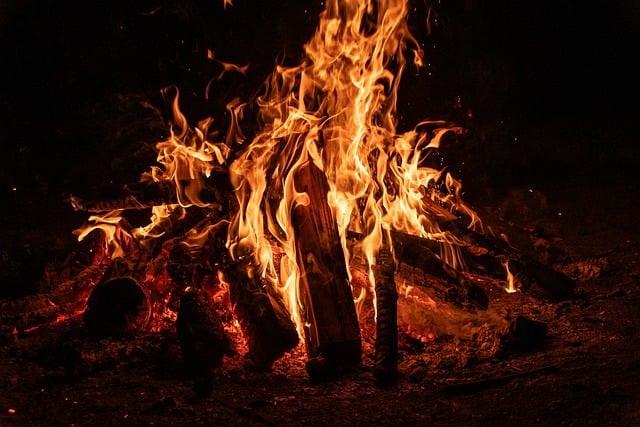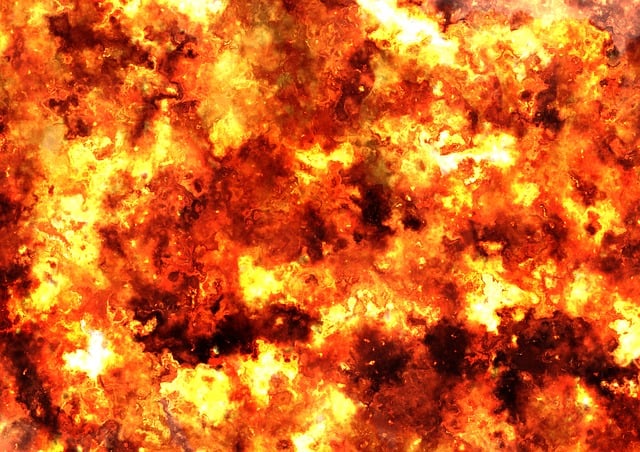Navigating Chicago’s Housing Regulations: Selling Fire-Damaged Homes
Selling a home with fire damage in Chicago involves understanding strict building codes, insurance c…….
In the vibrant city of Chicago, navigating the real estate market presents unique challenges, particularly when a property has sustained fire damage. This comprehensive article delves into the intricacies of selling a house with such damage, exploring its complexities, potential outcomes, and the strategies involved. By examining various facets, from legal considerations to market dynamics, readers will gain valuable insights into this intriguing aspect of Chicago’s real estate landscape.
“Can you sell a house that has fire damage Chicago?” is a query that arises for homeowners facing unexpected setbacks when putting their property up for sale. It refers to the process of selling a residential building in Chicago, Illinois, that has experienced structural or content damage due to a fire incident. This scenario can range from minor kitchen fires to significant blazes, each leaving its mark on the home’s condition.
Selling a fire-damaged property involves several key components:
Assessment of Damage: The initial step is to thoroughly assess the extent of the damage caused by the fire. This includes evaluating structural integrity, identifying damaged areas, and determining the cost of repairs.
Legal Compliance: Chicago has stringent building codes and regulations regarding property sales, especially after a disaster like a fire. Homeowners must ensure their property complies with these standards and may require permits for certain repairs or renovations.
Disclosure Requirements: Sellers are legally obligated to disclose any known material defects, including fire damage, in the property’s condition. This transparency is crucial for building trust with potential buyers.
Chicago has a rich history of resilience, often bouncing back from disasters, including fires that have shaped its urban landscape. In the late 19th and early 20th centuries, devastating fires led to significant city-wide renovations and the establishment of modern building codes. These events highlight the city’s ability to adapt and evolve, even in the face of challenging circumstances.
The concept of selling fire-damaged properties is not confined to Chicago but has global implications. Many cities worldwide grapple with similar challenges after fires, leading to diverse approaches to property rehabilitation and resale:
North America: Cities like New York and Los Angeles have established robust systems for handling damaged properties, often involving specialized insurance claims processes and strict building code adherence.
Europe: European countries, such as the United Kingdom and Germany, have developed market-driven solutions, where property owners can sell as-is or undergo rehabilitation for a higher resale value.
Asia: In Japan, cultural norms encourage rebuilding and renewal after disasters, resulting in vibrant communities rising from the ashes. Other Asian cities, like Singapore, have efficient systems for property restoration and resale.
Regional variations in climate and building practices impact the handling of fire-damaged properties:
| Region | Trend | Description |
|---|---|---|
| Northern States | Strict Building Codes | Stricter regulations after fires ensure safer structures, but may increase rehabilitation costs for sellers. |
| Coastal Areas | Insurance Coverage | Comprehensive insurance policies often cover fire damage, making resale less complex in these regions. |
| Urban Centers | Market Demand | High demand for urban properties can offset damage concerns, allowing for quicker sales. |
The Chicago real estate market plays a pivotal role in determining the resale value of fire-damaged properties:
Supply and Demand: In a buyer’s market, sellers may face challenges, but a balanced or seller’s market can offer better opportunities for fair sales.
Neighborhood Impact: Properties in desirable neighborhoods with strong local economies are more likely to retain their value or even increase it after fire damage, depending on the repair efforts.
Investors in Chicago’s real estate market approach fire-damaged properties differently:
Flipping Opportunities: Some investors see potential for profit by acquiring damaged properties at discounted prices and renovating them for higher resale values.
Long-Term Holdings: Others may hold onto these properties, offering rental options while awaiting favorable market conditions for a sale.
Fire damage can impact the broader economic system in several ways:
Insurance Industry: Insurance claims for fire damage contribute to insurers’ risk management strategies and pricing models.
Construction Sector: Rehabilitation efforts stimulate the local construction industry, creating employment opportunities and contributing to economic growth.
Technology plays a transformative role in managing fire-damaged properties:
3D Imaging and Drone Surveys: These tools enable non-invasive assessments of property damage, providing detailed visual data for insurance claims and selling purposes.
Online Property Platforms: Various apps and websites offer digital platforms for homeowners to document damage, manage repairs, and connect with contractors or buyers.
Advancements in home technology can enhance the appeal of fire-damaged properties:
Smart Home Integration: Installing smart home systems that include smoke detectors, automated fire suppression, and real-time monitoring can increase property value and attract tech-savvy buyers.
Energy Efficiency: Incorporating energy-efficient solutions during repairs can reduce costs and appeal to environmentally conscious buyers.
Chicago’s building department oversees strict regulations regarding property rehabilitation and resale:
Permits: Sellers must obtain the necessary permits for structural repairs, renovations, or additions, ensuring compliance with safety standards.
Inspection Requirements: Inspections are mandatory to verify that repairs meet code requirements before a property can be sold.
Dealing with insurance companies is a critical aspect of selling fire-damaged properties:
Claim Filing: Homeowners should promptly file insurance claims, providing detailed documentation of damage for accurate settlement amounts.
Negotiation: Understanding the insurance settlement process and negotiating terms can help owners secure fair compensation for their losses.
Transparency is key to successfully selling a fire-damaged property:
Full Disclosure: Sellers should provide detailed information about damage, including repair estimates, to build trust with potential buyers.
Professional Inspection Reports: Including independent inspection reports in the sales package can enhance credibility and showcase thorough disclosure.
Deciding how to proceed after a fire depends on various factors:
Repair and Renovate: If damage is significant but repairable, sellers can choose to renovate, potentially increasing the property’s value before resale.
As-Is Sale: In some cases, selling the property “as-is” may be the best option, allowing buyers to negotiate repairs or insurance settlements.
Effective marketing strategies are crucial for attracting buyers:
Highlighting Unique Features: Emphasize any positive aspects of the property, such as a desirable location, spacious rooms, or potential for renovation.
Virtual Tours: Utilize digital tools to create immersive virtual tours, offering buyers a comprehensive view of the property’s current state.
Q: Can I sell my fire-damaged home without repairs?
A: In Chicago, it is generally required to bring the property up to code before selling. However, some buyers may be willing to purchase “as-is,” allowing them to manage repairs post-purchase.
Q: How do insurance claims affect my resale value?
A: Accurate and fair insurance settlements can positively impact resale value by demonstrating a commitment to repairing the property. Timely and transparent claims processes are beneficial for both sellers and buyers.
Q: Are there tax implications for selling a fire-damaged property?
A: Tax laws vary, but in many cases, fire damage repairs may be deductible as home improvements. Consulting with an accountant or tax advisor is advisable to understand specific tax considerations.
Selling a house that has sustained fire damage in Chicago involves navigating complex legal, economic, and emotional aspects. By understanding the process, homeowners can make informed decisions, ensuring a smooth transition during this challenging time. While there are challenges, with careful planning, transparency, and the right support, it is indeed possible to sell a fire-damaged property and move forward with confidence.

Selling a home with fire damage in Chicago involves understanding strict building codes, insurance c…….

House flipping in Chicago presents unique opportunities with fire-damaged properties, but requires a…….

In Illinois, especially Chicago, strict property disclosure laws mandate sellers disclose any known…….

Selling a house with fire damage in Chicago requires a thorough understanding of fire damage assessm…….

Selling a home with fire damage in Chicago presents unique opportunities, but requires understanding…….

Fire-damaged property auctions in Illinois, especially Chicago, offer competitive real estate prices…….

Selling a fire-damaged property in Chicago requires knowledge of local real estate practices, focusi…….

In Illinois, especially Chicago, understanding the fire insurance claims process is crucial for home…….

In Chicago, fire damage assessment is crucial for post-fire property valuation. Homeowners and buyer…….

Selling a fire-damaged home in Chicago requires understanding fire damage assessment, local regulati…….